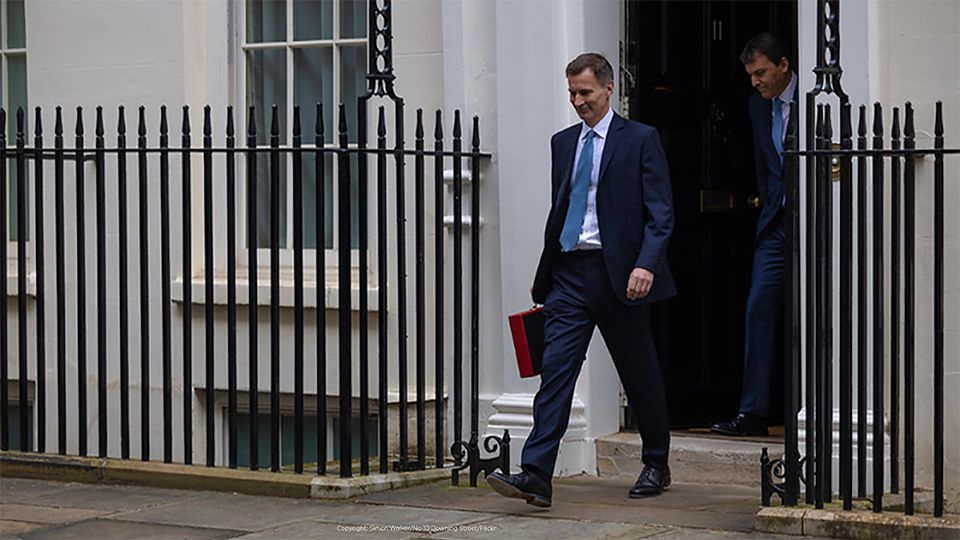The Spring Budget was missing “serious consideration” of how Britain plans to make its mark in the global clean energy ‘arms race’, the chief executive of the UK Sustainable Investment and Finance Association (UKSIF) has said.
See also: Spring Budget 2023: Nuclear to be classed as sustainable in UK Taxonomy
James Alexander, CEO at UKSIF, welcomed Budget measures including support for carbon capture and storage technologies, and clarity on the UK’s ‘green taxonomy’, which will include nuclear as environmentally sustainable.
However, he added the Budget “should have begun serious consideration of a positive UK response to the global clean energy ‘arms race’”, alongside measure from US and EU.
He said: “As a priority, many investors want to see from government credible decarbonisation roadmaps for key economic sectors, including for those areas where policy clarity is particularly lacking, as well as incentives in place to unlock private capital into the wider economy and the UK’s transition.”
Today (15 March) chancellor Jeremy Hunt used his Budget to launch a new nuclear programme aimed at generating a quarter of the country’s electricity by 2050, and reclassified nuclear energy as environmentally sustainable.
The chancellor also launched the first competition for small modular reactors. Carbon capture usage and storage (CCUS) also featured in the Budget: Hunt said he was allocating up to £20bn of support for the early development of CCUS, “paving the way for CCUS across the country as we approach 2050”.
‘Ultimately a disappointment’
Laura Hoy, equity and ESG analyst at Hargreaves Lansdown, branded the Budget “ultimately a disappointment” for glossing over any meaningful environmental or social reforms.
There was no mention of the windfall tax or the energy generator’s levy (EGL), which she said “was a missed opportunity”.
Hoy added: “We’d hoped Hunt would at least offer renewables generators the same lifelines he’s extended to oil and gas companies with investment-related tax breaks to the EGL that are on a level playing field with those built into the existing windfall tax.”
The support that was announced, a £20bn package for carbon capture and storage, “serves as a crutch for fossil fuel companies and does nothing to incentivise investment in renewable”, Hoy said.
She also criticised a lack of further support for building efficiency upgrades, and said current policies have been “poorly implemented, rendering much of the government’s investment pledge inconsequential”, with people unable to take advantage of schemes whose funds are rolled straight back into the Treasury in “little more than an empty promise”.
However, Steve Malkin, CEO and founder of sustainability and net zero certifier Planet Mark, said it was “encouraging” to hear the chancellor class nuclear as environmentally sustainable.
He said: “This is a pragmatic step forward given the climate emergency we are facing. However, this must come alongside greater investment into renewables, on land and sea, if we are to secure economy-wide decarbonisation.”
Malkin also called for greater long-term investment in supporting Britain’s small and medium sized (SMEs) enterprises, 90% of the country’s companies, to reduce their energy bills through reducing their emissions.
He added: “This is especially important in lieu of any additional immediate government support on energy bills. While tax relief on energy efficiency measures is welcome, an urgent nationwide awareness campaign for SMEs on how to cut emissions, alongside more ambitious energy efficiency incentives, will be necessary to make the UK a green growth superpower”.
Carbon capture leader
Richard Lum, co-CIO at Victory Hill Capital Partners, called today’s £20bn move by the chancellor to support carbon capture “a healthy step in the right direction, that will help ensure the UK continues to lead the world in applying this technology”.
He added: “The government has recognised the need to do more to promote the reuse of the captured emissions, rather than only backing sequestration.
“Reusing these emissions could boost the economy by supplying certain sectors such as the food and beverage and agriculture industries with valuable and much needed carbon dioxide gas.”
The inclusion of nuclear and gas in the EU Green Taxonomy was heavily criticised when announced last year with some countries even threatening legal action. However, European Parliament approved nuclear energy and gas power to be classed as sustainable investments in July.
Zoe Stollard, partner at law firm Browne Jacobson, said the UK’s reclassification of nuclear announced in the Budget will necessarily remove the “stigma” from the energy source, and spur investment.
She said: “Classing nuclear as “environmentally sustainable”, subject to consultation, will give it access to the same investment incentives as renewable energy, allowing corporates to invest, and changing the previous nuclear “branding” to allow nuclear to benefit from the investment it needs to really take off.”
The investment will, in turn, mean that Britain can be more joined up in its approach to nuclear power, she said, where Hinkley Point C, Sizewell C and the newer SMR technologies, can start to collaborate more.
Stollard added: “Nuclear continues to bring huge inward investment to the areas where it is being researched and developed and produced.”








